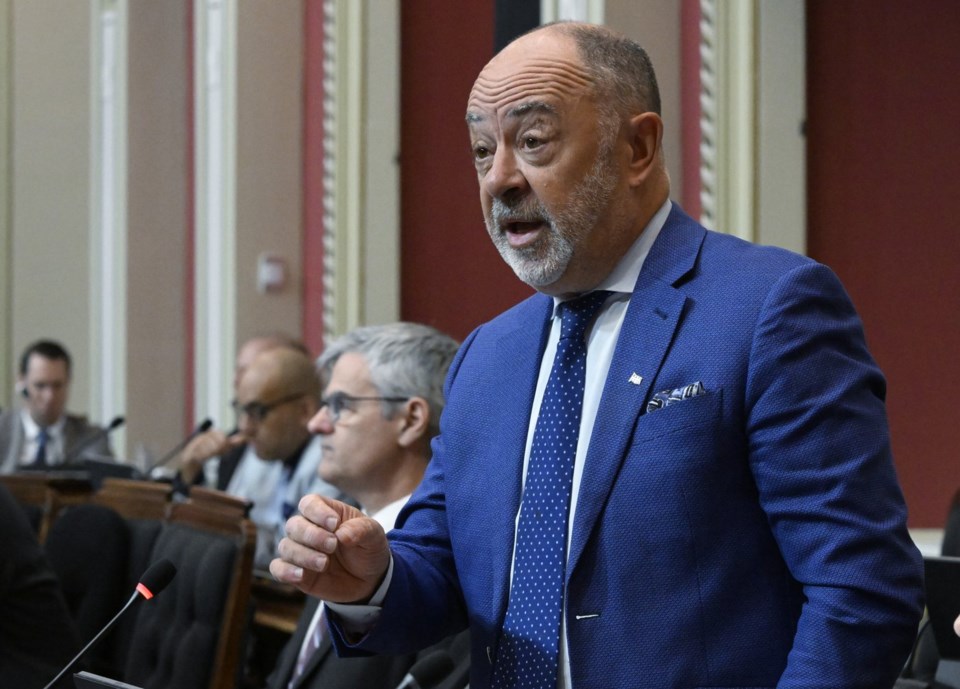MONTREAL ŌĆö The Quebec government is planning to force new doctors trained in the province to work in Quebec's public health-care system for the first few years of their practice, in a bid to slow the loss of physicians to the private sector and to other provinces.
Health Minister Christian Dub├® says he will table a bill by the end of the legislative session, to be debated next spring, that would require family doctors and specialists to start their careers in Quebec's public network.
"While too many Quebecers are still waiting to be treated, too many doctors decide, from the start of their career, to leave the Quebec public network," he said in a statement Sunday evening. "We will take steps to ensure that the population has access to the care for which they pay."
Dub├® told a Montreal radio station on Monday morning that those who want to leave Quebec or work in the private system will face "consequences," though he offered no details. It's also unclear how long new doctors would be required to practise in Quebec's public network.
The Quebec government estimates it costs between $435,000 and $790,000 to train a doctor, including during their residency. It says that 775 of Quebec's 22,479 practising physicians are working exclusively in the private sector, a 70 per cent increase since 2020. The trend is especially notable among new doctors, according to the province.
A spokesperson for Dub├® told The Canadian Press that 400 of the 2,536 doctors who completed their studies between 2015 and 2017 have left Quebec for other jurisdictions. Moreover, 2,355 doctors trained in Quebec are practising in Ontario, including 1,675 who attended McGill University.
Data from the Canadian Institute for Health Information show that just 60 per cent of family doctors who had recently graduated in Quebec were still practising in the province in 2022, while nearly 20 per cent had moved to Ontario. The number was higher for specialists, with 77 per cent of recent graduates still practising in Quebec.
In Ontario, 85 per cent of recently graduated family doctors and 80 per cent of specialists were still in the province in 2022. In Nova Scotia, however, just 42 per cent of family doctors and 38 per cent of specialists remained in the province.
Krystle Wittevrongel, director of research with the Montreal Economic Institute, said the new proposal doesn't address the underlying issues that are pushing doctors toward the private system, including the prospect of dealing with less red tape and having greater power to set their own schedules. The government's plan "is actually putting more constraints on them and making it more rigid," she said.
Quebec is unique in sa╣·╝╩┤½├Į for the high number of doctors migrating to private medicine, in large part due to provincial rules that let doctors easily opt in and out of the public network. "It's virtually none (leaving) or very few in the rest of sa╣·╝╩┤½├Į compared to hundreds, and it's a growing number, in Quebec," Wittevrongel said.
She said a better solution would be to allow doctors to have a "mixed practice," which would let them work in both the public and private sectors.
Quebec's college of physicians said it supports the government's plan. "For us, this is a question of social responsibility," it said in a statement. "But we will want to see the terms of this bill."
On Monday, the college released a set of guiding principles for the role of the private sector in health care, which included a call for the expansion of the private health system to be "suspended immediately."
This report by The Canadian Press was first published Nov. 4, 2024.
Maura Forrest, The Canadian Press


